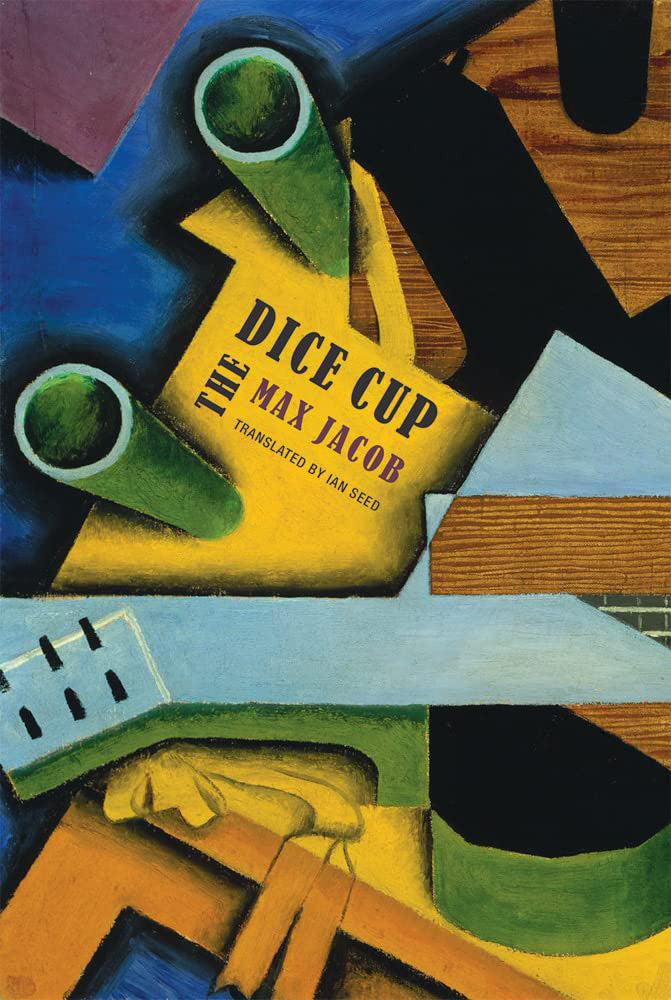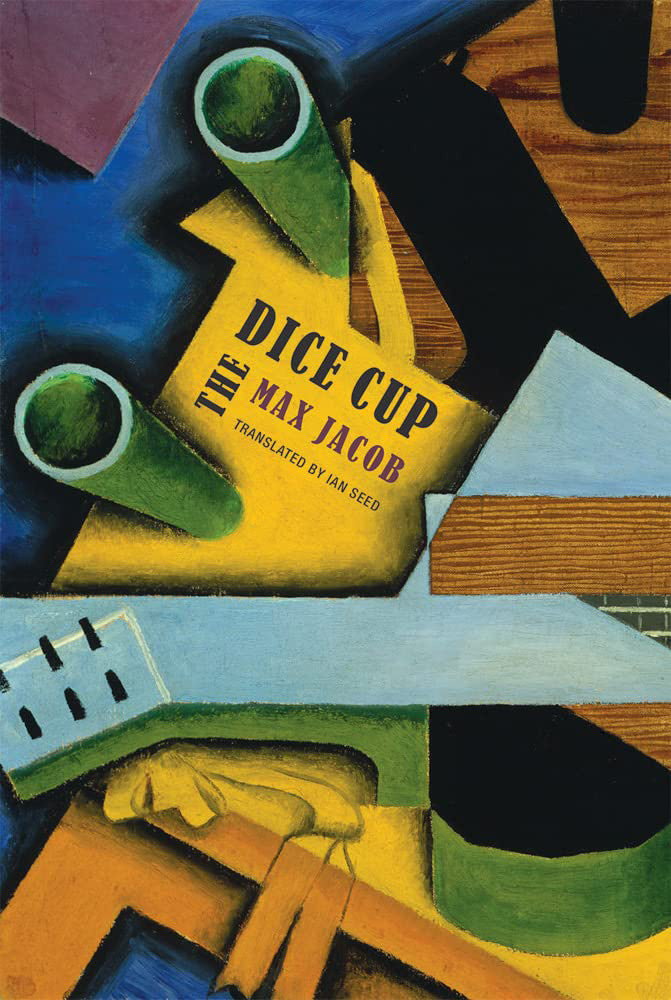The Dice Cup
The Dice Cup
Max Jacob
Couldn't load pickup availability
Translated, with an introduction, by Ian Seed / November 2022 / 5.375 x 8, 264 pp. / 978-1-939663-83-6
Although Max Jacob’s life continues to be read in the shadow of his friend and colleague Pablo Picasso, and his work continues to live in the shadow of that of Guillaume Apollinaire, his role in French modernism was essential, and with this second volume of his work from Wakefield Press, can now be fully and properly assessed. First published at his own expense in 1917 (though most of its poems had been written between 1903 and 1910), The Dice Cup stands alongside Baudelaire’s Paris Spleen, Rimbaud’s Illuminations, Gertrude Stein’s Tender Buttons, and Pierre Reverdy’s Prose Poems as one of the most important and foundational books of prose poetry: one that broke with the nascent tradition of the nineteenth century to give it a new, modern shape for the twentieth.
Jacob has been identified as a “cubist poet,” but this collection and its shifting style escape any such easy definition: dream accounts are rendered in playful prose that thumbs its nose at the fabular tradition of Baudelaire and Mallarmé along with the Romantic disorder of Rimbaud, and subvert both poetic and narrative expectations in favor of dream logic, allusion, transformed autobiography, and nonsensical parody. Surreal before surrealism, both mystical and burlesque, the prose poems of Jacob’s Dice Cup offer alternative versions of reality: consciously constructed, yet as unstable and unfixed as both Jacob’s personality and our own.
Max Jacob (1876–1944) was a French poet, painter, writer, and critic. A key figure of the bohemian setting of Montmartre Paris and the legendary cubist era, he rubbed shoulders with such figures as Guillaume Apollinaire and Amadeo Modigliani, was a lifelong friend to Pablo Picasso, Juan Gris, and Jean Cocteau, and an influence for a generation of young writers. After experiencing a mystic vision in his studio apartment in 1909, Jacob converted from Judaism to Christianity in 1915, with Picasso as godfather. Arrested by the Gestapo in 1944, he subsequently died in a deportation camp from bronchial pneumonia.
Press
“There is much to be enjoyed and loved in this book by readers who understand the importance, and pleasures, of being teased and confounded.”
—Jeremy Over, PN Review
“These new translations of two of Jacob’s major collections should be recognized as welcome and essential.”
—Patrick James Dunagan, Rain Taxi
“The appeal of Jacob’s prose poems is in their universality and agile unpretentiousness of delightfully bizarre fables and foibles, parodies and pastiche, the outrageous and the innocuous, the prophetic and the fated.”
—Pat Nolan, The New Black Bart Poetry Society
“This choice of an absolutely contemporary vocabulary manages to retain the freshness in phrasing of Jacob’s poems; Seed can allow himself to have fun, for his style is situated exemplarily in a universe which rightly wins over the unreserved complicity of the reader […] In short, one discovers here, with pure joy and genuine amazement, the look, by turns malicious, anguished or disoriented, of Max Jacob…”
—Alexander Dickow, Les Cahiers Max Jacob
“The translation does an admirable job… I’d never read The Dice Cup before starting this review but was steadily won over by its lovable quirkiness, intellectual heft, and curious humility. I also became persuaded of its importance within a location and period surely unignorable and enthralling to anyone interested in modernism.”
—Guy Russell, Tears in the Fence


